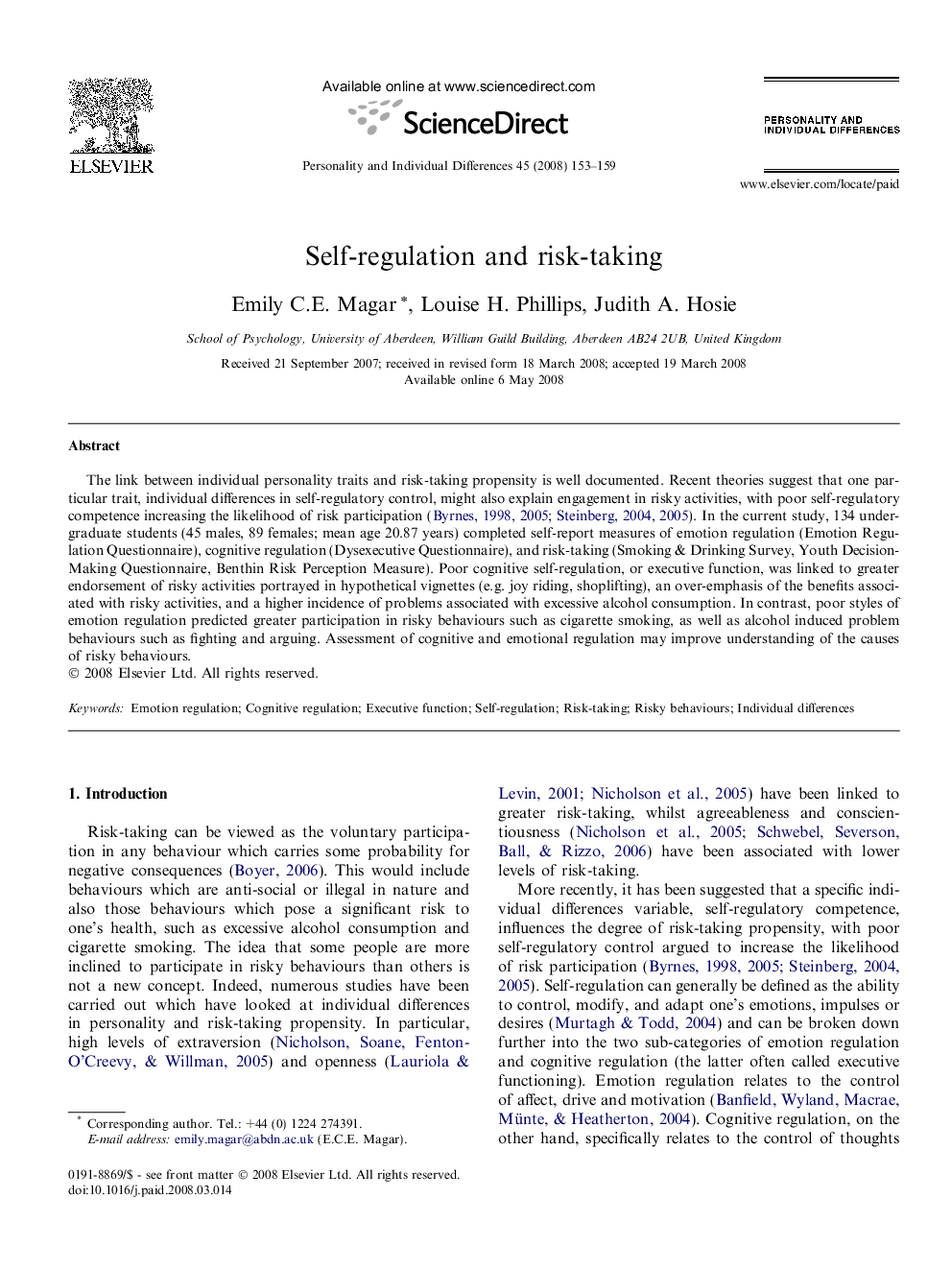| Article ID | Journal | Published Year | Pages | File Type |
|---|---|---|---|---|
| 892369 | Personality and Individual Differences | 2008 | 7 Pages |
The link between individual personality traits and risk-taking propensity is well documented. Recent theories suggest that one particular trait, individual differences in self-regulatory control, might also explain engagement in risky activities, with poor self-regulatory competence increasing the likelihood of risk participation (Byrnes, 1998, Byrnes, 2005, Steinberg, 2004 and Steinberg, 2005). In the current study, 134 undergraduate students (45 males, 89 females; mean age 20.87 years) completed self-report measures of emotion regulation (Emotion Regulation Questionnaire), cognitive regulation (Dysexecutive Questionnaire), and risk-taking (Smoking & Drinking Survey, Youth Decision-Making Questionnaire, Benthin Risk Perception Measure). Poor cognitive self-regulation, or executive function, was linked to greater endorsement of risky activities portrayed in hypothetical vignettes (e.g. joy riding, shoplifting), an over-emphasis of the benefits associated with risky activities, and a higher incidence of problems associated with excessive alcohol consumption. In contrast, poor styles of emotion regulation predicted greater participation in risky behaviours such as cigarette smoking, as well as alcohol induced problem behaviours such as fighting and arguing. Assessment of cognitive and emotional regulation may improve understanding of the causes of risky behaviours.
